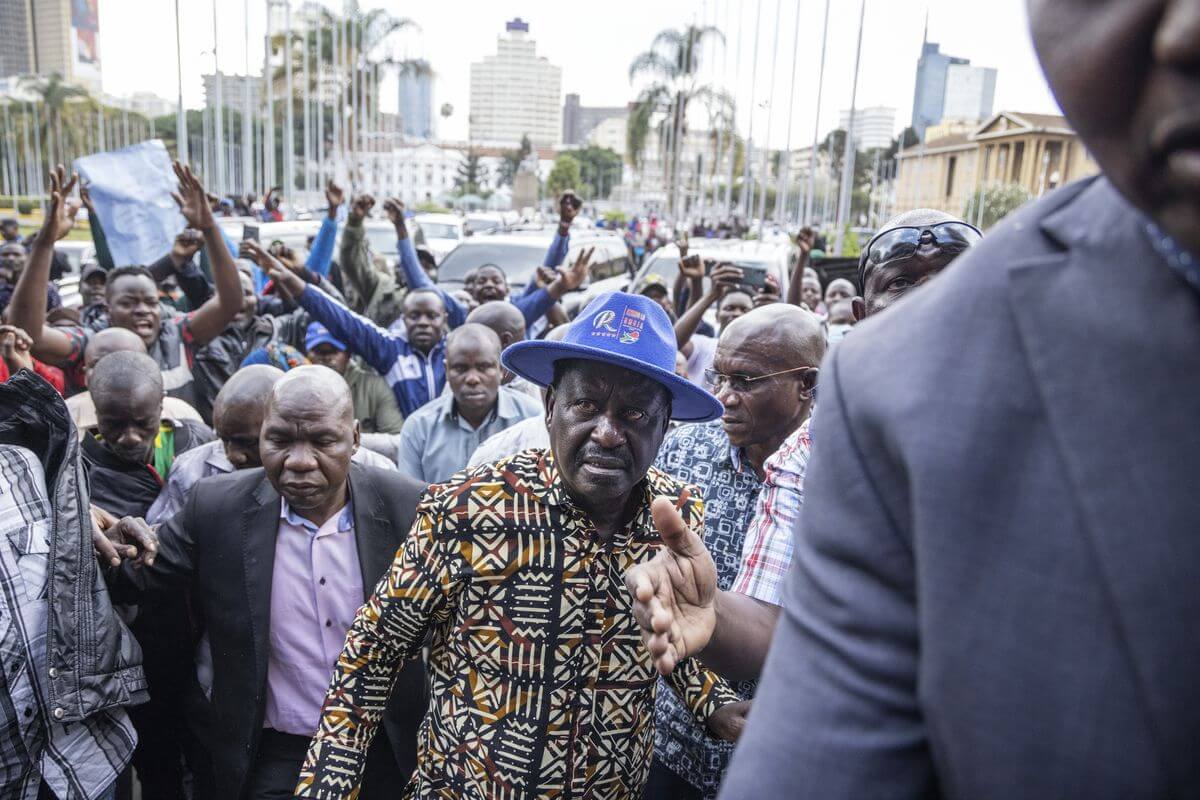With the pre-trial conference for nine petitions challenging Kenyan president-elect William Ruto’s victory set to begin today, opposition leader Raila Odinga has claimed that his Azimio La Umoja coalition “should be announced as the winners” but reaffirmed that “if the courts decide otherwise, we will basically respect the ruling.”
His apparent concession comes despite an investigation by Kenya’s Directorate of Criminal Investigations (DCI) revealed that three Venezuelans were among dozens of people who acquired unauthorised access to the Independent Electoral and Boundaries Commission (IEBC) servers five months before the disputed August 9 polls.
A parallel forensic analysis by East African Data Handlers, backed by the DCI, indicated electoral fraud through backward tallying of votes and several successful attempts to download form 34C to illegally declare Ruto victorious. In fact, the probe concludes that between August 12 and 15, 27 attempts were made to access electoral form 34C, in which final results were declared.
THREAD📌
— Michael Wandati (@MichaelWandati) August 24, 2022
Kenya's Election Petition: @RailaOdinga's 21 key prayers at the Supreme Court
1/ IEBC and Chebukati to provide all materials, including electronic devices and equipment for presidential elections, within 48 hours.#KenyaDecides #KenyanElection2022 #KenyaDecides2022 pic.twitter.com/HpADLRyvZ1
IEBC Chairperson Wafula Chebukati, however, rubbished these accusations, claiming that the commission’s servers are “impenetrable” and adding that the three Venezuelan nationals were contracted by the IEBC to provide electoral management technology on behalf of auditing firm Smartmatic International.
His remarks were seconded by IEBC Director Information Communication and Technology Michael Ouma, who said the “safeguards and security features eliminated and continue to protect against any possibility of intrusion by an unauthorised third party.”
4/ Summon @DCI_Kenya to produce gadgets and materials, including reports, equipment, laptops and phones related to or found in possession of the Venezuelan nationals linked to the @IEBCKenya.#KenyaDecides #KenyanElection2022 #KenyaDecides2022
— Michael Wandati (@MichaelWandati) August 24, 2022
Furthermore, he lambasted Odinga’s challenge to Ruto’s victory, stating that his allegations against IEBC are “ambiguous, unsubstantiated, and without any basis.” In the same vein, Ouma asserted that “all allegations of compromise or intrusion by third parties are without basis and intended to mislead the public to garner sympathy.”
Odinga’s political party is one of nine petitioners who have challenged Ruto’s electoral victory in the Supreme Court, contending that there was a “fraudulent interference” in the IEBC servers and a failure to tally ballots from 27 constituencies comprising over 140,000 votes
The Commission wishes to inform the public that the statements made today by Former Prime Minister Raila Odinga with regard to the role of the Chairman in the two Gubernatorial elections scheduled for Monday 29th August 2022 are misleading.
— IEBC (@IEBCKenya) August 24, 2022
(1/2)
The petition filed on August 22 alleges “criminality” in tallying of votes, citing a mismatch between the turnout figures and the result and tampering of vote share, which according to Odinga render the final results “unverifiable.”
In fact, his claims have been echoed by four of the seven members of the Kenyan Election Commission, who said before the final tally was announced that they could not “take responsibility for the results” due to the “opaque nature of the process.”
To this end, Odinga has demanded a recount and stressed that he wants the Supreme Court to hear the matter “impartially” and vowed to abide by its ruling. “I don’t really want to appear as if I’m trying to blackmail… I don’t want to speculate,” Odinga told Reuters on Monday.
We trust @Kenyajudiciary. Our courts remain the only safe abound, our vanguard for Truth and Justice. 20 years on, #SCoK offers the only HOPE to revive our globally acclaimed OPTIMISM a people 🇰🇪. Whatever risks - State or Criminal Capture risks - we need our 🇰🇪 motherland back!
— Kabando Wa Kabando (@Wakabando) August 28, 2022
However, President-elect William Ruto accuses his opponent’s suit of being “full of sound and fury” and “much ado about nothing,” dismissing it as a tactic to push for a power-sharing agreement.
In fact, IEBC Member Boya Molu last week asserted that the commission is “very confident there was no any violation of any procedure, rules or regulation” and submitted electoral forms 34A, 34B, 34C, and 34D to show that Ruto was duly elected. The sentiment was reiterated in the testimony of IEBC Chairperson Chebukati, who underscored that the August 9 elections were “free, fair, and credible.”
Kenya’s Supreme Court, led by Chief Justice Martha Karambu Koome, will begin the pre-trial conference with the defence, prosecution, and judges today, after which the court is constitutionally obligated to deliver a verdict before September 5. If the court overturns the results, a fresh election is required to be held within 60 days, before November 4.
Apparently all election contests in Kenya are legitimate and perfect except those Hon Raila loses...as I said many times our elections are perfect...we only have a RAILA PROBLEM grounded on "The Raila Doctrine"
— Ahmednasir Abdullahi SC (@ahmednasirlaw) August 29, 2022
Jurists from the Africa Judges and Jurists Forum (AJJF), headed by Tanzania Chief Justice Mohammed Chande Othman arrived in Nairobi on Monday, to monitor the court proceedings. At the end of the hearings, the AJJF will present a comprehensive report suggesting measures for a “more professional, independent, impartial, and accountable judiciary” in Kenya.
The dispute has raised apprehensions of post-poll violence. In fact, since 2002, not a single ballot box in Kenya has gone uncontested.
In 2017, the Supreme Court even overturned outgoing President Uhuru Kenyatta’s electoral victory, declaring it “invalid, null and void,” a first in all of Africa. What followed were riots in which more than 100 civilians were killed.
Likewise, in 2007, President Mwai Kibaki’s win was challenged by five-time opposition candidate Odinga, resulting in the bloodiest election in the country’s history, killing at least 1,200 and displacing over 600,000 civilians.
Earlier this month, Deputy President Ruto was declared victorious over Odinga by a narrow margin of 2%, or around 230,000 votes.

